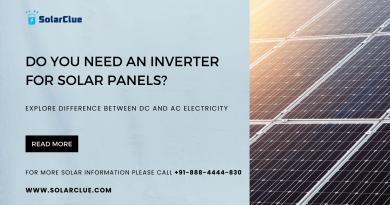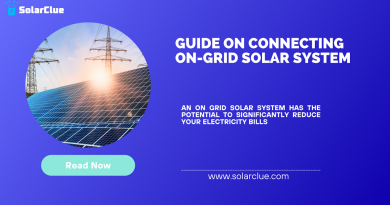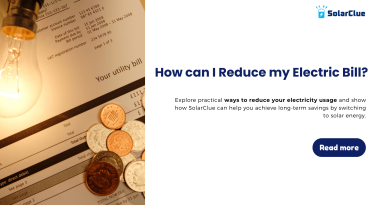Are Solar Panels Radioactive?
Solar panels have become a popular and sustainable energy solution worldwide, but misconceptions about their safety still exist. One common myth is that solar panels are radioactive. This blog post will debunk this misconception by explaining how solar panels generate electricity, discussing the materials used in their construction, and comparing them to other energy sources in terms of radiation emissions. We’ll also reassure readers about the safety of solar power technology.
Table of Contents
- 1 How Solar Panels Generate Electricity
- 1.1 Materials Used in Solar Panel Construction
- 1.2 Comparison of Radiation Emissions from Different Energy Sources
- 1.3 Addressing Common Misconceptions About Solar Panel Radiation
- 1.4 The Safety of Living Near Solar Panels
- 1.5 The Importance of Proper Solar Panel Installation and Maintenance
- 1.6 The Role of Government Regulations in Ensuring Solar Panel Safety
- 1.7 The Future of Solar Technology and Its Commitment to Safety
- 1.8 Conclusion
- 1.9 FAQ Section
How Solar Panels Generate Electricity
Photovoltaic Effect:
- Solar panels convert sunlight into electricity through the photovoltaic effect. When sunlight hits the solar cells made of semiconductor materials (usually silicon), it excites electrons, creating an electric current.
- This direct current (DC) electricity is then converted to alternating current (AC) by an inverter, making it suitable for use in homes and businesses.
No Radioactivity Involved:
- The process of converting sunlight into electricity in solar panels does not involve any radioactive materials or processes. It is a clean and direct conversion of energy from the sun to electrical power.
Materials Used in Solar Panel Construction
Semiconductors:
- Silicon: The primary material used in most solar panels is silicon, a non-toxic, abundant, and stable element that is safe for both people and the environment.
Encapsulants and Coatings:
- EVA (Ethylene Vinyl Acetate): This material is used to encapsulate the solar cells, providing protection and durability. EVA is non-toxic and does not pose any health risks.
- Tempered Glass: Solar panels are covered with a layer of tempered glass to protect the cells. This glass is similar to what is used in windows and does not emit any harmful radiation.
Backsheet and Frame:
- Polymer Backsheet: The backsheet provides electrical insulation and structural support, made from durable polymers that are safe and non-toxic.
- Aluminum Frame: The frame is typically made from anodized aluminum, a lightweight and corrosion-resistant material that is commonly used in various industries, including food packaging and construction.
Comparison of Radiation Emissions from Different Energy Sources
| Energy Source | Radiation Emissions | Safety Notes |
|---|---|---|
| Solar Panels | None | No radioactive materials involved |
| Nuclear Power Plants | High | Controlled environment; potential for leaks |
| Coal Power Plants | Low (Natural Radiation) | Emits radon gas and other pollutants |
| Natural Gas Power Plants | Very Low | Minimal emissions, but can release radon |
| Wind Turbines | None | No radiation emissions; purely mechanical |
Addressing Common Misconceptions About Solar Panel Radiation
Myth: Solar panels emit harmful radiation.
- Fact: Solar panels do not emit any harmful radiation. They convert sunlight into electricity without involving any radioactive materials or processes.
Myth: Living near solar panels is unsafe due to radiation exposure.
- Fact: Solar panels are safe to live near, as they do not emit radiation. The materials used in solar panels are non-toxic and pose no health risks.
The Safety of Living Near Solar Panels
Safe for Communities:
- Solar panels are installed in residential, commercial, and utility-scale settings around the world without any adverse health effects. They are safe for humans, animals, and the environment.
Low Electromagnetic Fields (EMF):
- The electrical components in solar panels generate very low levels of electromagnetic fields, far below the thresholds that could pose health risks. These EMF levels are comparable to those from household appliances like refrigerators and televisions.
The Importance of Proper Solar Panel Installation and Maintenance
Professional Installation:
- Ensuring that solar panels are installed by certified professionals is crucial for maximizing safety. Proper installation ensures that the panels operate efficiently and safely within the designed parameters.
Regular Maintenance:
- While solar panels require minimal maintenance, regular inspections can help identify and address any potential issues, ensuring long-term safety and performance.
The Role of Government Regulations in Ensuring Solar Panel Safety
Strict Standards:
- Governments worldwide have established strict safety standards for the manufacture, installation, and operation of solar panels. These regulations ensure that all solar energy systems are safe for public use.
Certifications:
- Solar panels and related equipment often carry certifications from organizations like the International Electrotechnical Commission (IEC) and Underwriters Laboratories (UL), which verify that they meet rigorous safety standards.
The Future of Solar Technology and Its Commitment to Safety
Ongoing Research:
- As solar technology continues to evolve, research is ongoing to develop even safer and more efficient materials and systems. Innovations like thin-film solar cells and building-integrated photovoltaics (BIPV) are designed with safety and sustainability in mind.
Public Confidence:
- The solar industry remains committed to promoting public confidence by ensuring that all solar products are safe, reliable, and environmentally friendly.
Conclusion
Solar panels are a safe and effective way to harness renewable energy, with no risk of radiation or harmful emissions. By understanding the materials and technologies used in solar panels, we can confidently dispel the myth that they are radioactive. As solar technology continues to advance, it will remain a cornerstone of sustainable and safe energy production, contributing to a cleaner, healthier environment.
Here at SolarClue®, we offer a smart, practical, and “beautiful” solution. You will be answered for all the questions related to Solar.
We provide all kinds of brands that are the Best Solar panels in India.
If you are the one who is planning for the solar power system. Don’t hesitate to contact our team!
Looking forward to empowering you with solar energy, just like hundreds of our other clients!
FAQ Section
1. Do solar panels emit radiation?
No, solar panels do not emit radiation. They operate by converting sunlight into electricity using safe, non-toxic materials.
2. Is it safe to live near solar panels?
Yes, it is completely safe to live near solar panels. They do not emit harmful radiation or pose health risks to people or animals.
3. What materials are used in solar panels?
Solar panels are primarily made of silicon, encapsulated in EVA (Ethylene Vinyl Acetate), protected by tempered glass, and supported by an aluminum frame. All these materials are non-toxic and safe.
4. How do solar panels compare to other energy sources in terms of safety?
Solar panels are among the safest energy sources available, with no radiation emissions or toxic byproducts. They are safer than nuclear, coal, and natural gas power plants.
5. Are there any risks associated with solar panels?
When installed and maintained properly, solar panels pose no significant risks. It’s essential to ensure they are installed by certified professionals and inspected regularly.



